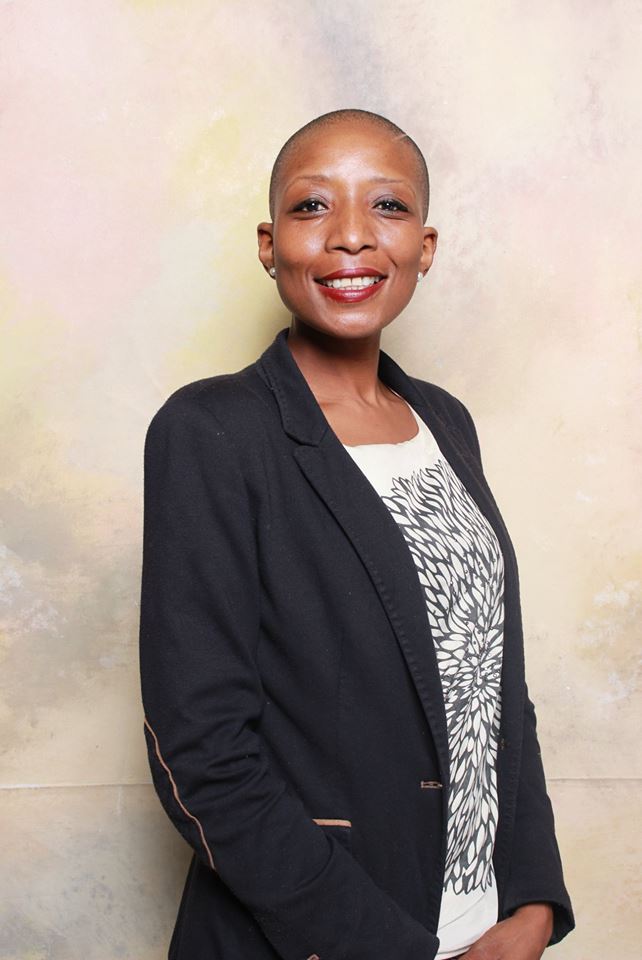Next up in our Limitless series on women succeeding in male-dominated industries, is Tuduetso Tebape, an entrepreneur running a sustainable beauty brand. She explains why she is driven to pass on indigenous wisdom to future generations.
For Tuduetso Tebape, finding her purpose has been rewarding in more ways than one. She is often asked to speak at conferences as an expert on ensuring sustainability and production standards in the cosmetic industry in Botswana. It’s a key part of the successful purpose-driven cosmetics brand Nubian Seed that she set up almost ten years ago. “I truly believe all the doors that have been opened for me are as a result of this pre-existing passion,” she shared. “It’s always been there, inside of me.”
Born in Botswana in 1982, Tebape spent her formative years travelling as her father worked in the diplomatic service. The family lived in the UK to Zambia, South Africa and Japan, before Tebape broke away from the family to attend college. In airports and during layovers, she would pass time perusing the aisles in the beauty chain The Body Shop.
Botswana’s capital city Gaborone was lacking in something she considered essential
At Lynn University in Boca Raton, Florida, she obtained a degree in Communications with a specialization in advertising and public relations. After graduating in 2006, she moved back home to Botswana, where her family had now settled. But being the new kid on the block at the age of 24 was daunting. Tebape refers to herself as a “daughter of the Diaspora” to acknowledge the many influences and diversity of her cultural upbringing.
But it didn’t take long for Tebape to realize that Botswana’s capital city Gaborone was lacking in something she considered essential. Shea butter had been introduced to her mother by a West African friend, and its use had been passed down like generational wealth.
Unable to source the good quality shea they were used to, Tebape and her sisters asked one of their West African aunties to send some through. More globally, interest in natural hair care products was growing. Word spread about the benefits of shea butter. Soon the Tebape sisters were being asked where they got it from.
Green beauty isn’t a fad, it’s a sustainable way of life
In 2012, Tebape and her sisters founded Nubian Seed. “I sometimes think how crazy it is that I used to go into all those Body Shops and obsess over their green beauty products only to end up owning one myself!”
A year later, their healthy sales of shea butter allowed them to expand a little and they decided to add Jamaican Black Castor oil to the range. They also learned how to whip shea butter and make their own body butter, which they added to their list of products. Next they added the essential oils. Just like that, they had a whole product line. To date, Nubian Seed boasts a catalogue of products ranging from body butters, soaps and soaks, to hair care products, lip balms, foot soaks, face masks and oils. For Tebape, green beauty isn’t a fad, it’s a sustainable way of life that also serves to pass on indigenous wisdom on wellness.
View this post on Instagram
With good sales, a growing clientele and confidence in what they had to offer, the sisters decided it was time to make it official and take the necessary steps to set up the business and make it legit. Go big or go home, right? Trademarking the name and registering the company would be the next step.
Tuduetso was accepted into the Stanford Go-To-Market programme sponsored by DeBeers Mining Company as one of the first 50 to be taken on for mentorship and training. “I felt I had to become a businessperson. It wasn’t enough to be in the motion of doing things, I had to become that.” In 2018 she was accepted for the Tony Elumelu Scholarship programme which came with a US$5000 grant upon completion.
“My community has played a very large role in providing me with a safe space for me to be productive,” she states, citing the support of close family and friends as well as the community of what she calls “learning circles” made up of the informal mentors she’s met along the way.
Patience is an important trait
She’s made a conscious effort to include her three children as much as possible in the day-to-day running of things. “There are many life lessons which can be taught to children, from their experiencing a front row seat of their mom’s entrepreneur life,” she adds. “Where my family is concerned, I receive a great deal of support from them.”
The vast array of people and places she encountered served to make her, above all, adaptable. “Resilience is a key character trait that has helped me get through the sometimes tumultuous journey,” she says. “I also believe that patience is an important trait. We have to be patient with ourselves and the journey we are on, by not letting the bumps that come along the way falsely become a determination of one’s ability to perform as an entrepreneur.”
With thanks to Africa No Filter who made this series possible.

